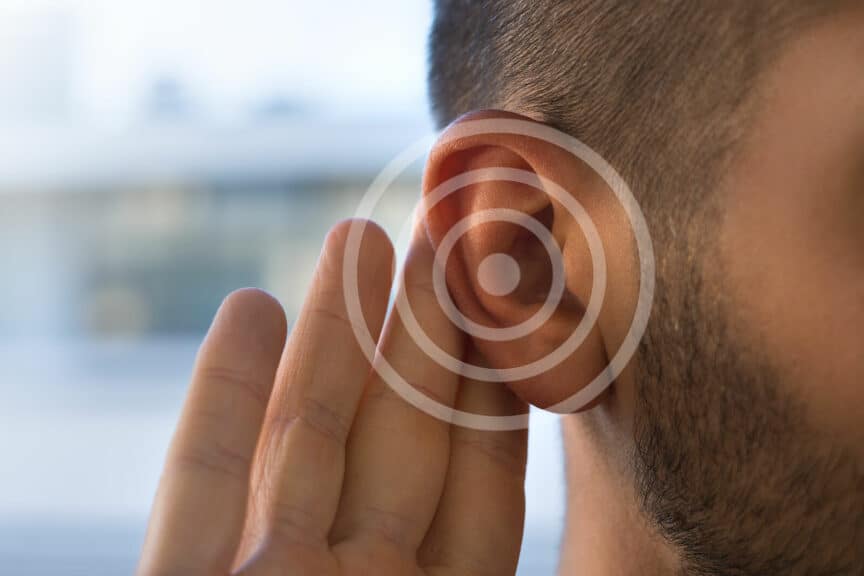Tinnitus is a persistent sound in your ears. It can be a ringing, buzzing, or humming sound, and it can be a challenging condition to navigate. While there isn’t a cure for tinnitus, countless individuals have found innovative ways to manage its impact on their daily lives.
Finding Peace in Calming Sounds
Emma, a marketing professional in her mid-thirties, experienced tinnitus after attending numerous concerts and music festivals. Initially feeling overwhelmed by the persistent ringing in her ears, Emma discovered solace in soundscapes. She started incorporating calming sounds, such as nature sounds and gentle music, into her daily routine. Using smartphone apps and white noise machines, Emma created an auditory environment that helped distract her from the tinnitus, providing a sense of peace and tranquility.
Emma’s Tip: “Experiment with different sounds until you find what works for you. Whether it’s ocean waves, bird songs, or instrumental music, creating your personalized soundscape can make a big difference.”
Mindfulness for Tinnitus Relief
Michael, a software engineer, developed tinnitus due to prolonged exposure to loud machinery in his workplace. Frustrated by the constant ringing, he explored mindfulness as a way to manage the emotional toll of tinnitus. Through mindfulness practices, Michael learned to observe the sounds without judgment and redirect his focus to the present moment. Over time, he found that his stress levels decreased, and the impact of tinnitus on his daily life lessened.
Michael’s Tip: “Mindfulness is about acceptance and being present. Instead of fighting the noise, learn to coexist with it. It’s a subtle shift that can make a world of difference.”
Support Groups: Building a Community
Sarah and John, a couple in their fifties, both developed tinnitus following a car accident that resulted in hearing damage. Feeling isolated in their struggles, they decided to attend a local tinnitus support group. Connecting with others who shared similar experiences not only provided emotional support but also practical tips for managing tinnitus. The couple learned about various coping mechanisms, from dietary changes to relaxation techniques, and felt empowered by the sense of community.
Sarah and John’s Tip: “Don’t underestimate the power of shared experiences. Joining a support group allows you to learn from others, share your own journey, and realize you’re not alone in this.”
Customized Sound Therapy
Alex, a college student, developed tinnitus after a period of intense stress and inadequate sleep. Determined to find relief, Alex visited a hearing health specialist who recommended customized sound therapy. By using hearing aids with built-in sound generators, Alex experienced significant improvement in managing tinnitus. The tailored sound therapy not only masked the ringing but also provided better hearing, reducing the perceived intensity of the tinnitus.
Alex’s Tip: “Consult with a hearing health specialist to explore personalized solutions. What works for one person may not work for another, so finding the right approach for your specific needs is the best way to go.”
Holistic Approaches to Tinnitus Management
Sophie, a senior in her 60s, experienced both hearing loss and tinnitus. Sophie wears hearing aids, but that’s not all. Rather than relying solely on conventional treatments, Sophie incorporated holistic approaches into her routine. This included acupuncture, dietary adjustments, and stress-reducing activities such as yoga and meditation. By addressing the interconnected aspects of her well-being, Sophie found relief from tinnitus and a renewed sense of balance in her life.
Sophie’s Tip: “Consider a holistic approach that encompasses your physical, mental, and emotional well-being. Small lifestyle changes can have a significant impact on your overall health and tinnitus management.”
Find What Works for Your
While tinnitus can present unique challenges, there are a range of things you can do to manage tinnitus. From creating a personalized playlist to embracing mindfulness and connecting with support communities, there are a number of paths to tinnitus management. And if you are managing both tinnitus and hearing loss, modern hearing aids are designed to tackle both challenges head-on.
If you or someone you know is dealing with tinnitus, seek professional guidance. A hearing health specialist can assess your specific tinnitus, explore tailored solutions, and provide ongoing support. Remember, you don’t have to face tinnitus alone – a support system is just a consultation away.

